Developer: KID Publisher: Naxat Soft Release: 07/17/92 Genre: Shooter
Absolutely incredible. That is all I can say. Summer Carnival ’92 Recca is the most technically accomplished game on the NES let alone in the shooter category. In terms of speed and pacing nothing else compares and it resembles a Genesis or Turbo Grafx game. Performance wise it embarrasses the early SNES shooters like Super R-Type and Gradius III. But despite all of its technical wizardry Recca also has the gameplay to match making it one of the most exhilarating experiences you will ever have on the little grey box.
The Summer Carnival in the title refers to the Naxat’s annual shooting competition which challenged players to achieve high scores in short two and five minute modes in a select title. Usually these were one of the 16-bit entries in the Star Soldier series but for 1992 Recca was the participant. Despite being on the Nintendo it did not disappoint. Although Recca was primarily conceived as a score attack title they still include a satisfying single player mode that will have you nervous and sweating like no other.
Recca has a large complement of weapons to play, five primary and five sub weapons to be exact. These hit the typical shooter staples such as a homing shot, laser, spread shot, five-way shot, and the Vulcan cannon. Weapon drops are frequent: every 16th enemy drops a weapon pod that cycle through the list. With the frequency of enemy waves you will rarely see a moment without a few power-ups on screen as an example. The sub weapons are defensive in nature as they are satellites that dock on your ship and behave differently depending on the item. These range from a rotating option that deflects bullets to a search option. The reason power-ups are so plentiful is because the game wants you to experiment. It does no good to become attached to a particular weapon, especially as the bosses are so varied.
While the sub-weapons provide some level of defense the most important is your smart bomb. When not firing your ship builds up energy indicated by a growing sphere. Even at its smallest size it can absorb bullets and many larger projectiles. At its maximum it becomes a spirit bomb attached to the front of your ship. The bomb itself is not that powerful. But while the explosion goes off it will absorb any and all bullets and buy you some time to charge another. This is critical to surviving the grueling boss battles that almost resemble bullet hell on the NES. The risk/reward of charging adds a layer of strategic depth that the game takes ample advantage of.
From the moment the game starts until the credits roll the action rarely stops in Recca. Enemy waves are frequent and in large numbers. You will rarely get a moment’s peace and your choice of weapon will largely determine how you manage the chaos. Certain weapon/sub-weapon combinations are great for clearing the levels like the homing shot + search pod, which is a double whammy of heat seeking power. Going in to a boss battle with a bad set can make the battle drag on. I fought the first major boss with the laser which was bad. Its weak point is small and its rotating arms left me with only small windows to attack. The enemies and bosses are so many and varied and together with the abundant power-ups gives so many opportunities to experiment. That is what makes Recca great.
Recca only has four levels. Yet these four stages feel twice as long. It has the pacing of a Treasure title with frequent boss battles between the relentless waves. Indeed the last level is a boss rush consisting of 11 bosses both new and old. It is brutal. But there are many extra modes to offer replay value. Resetting the system after beating the game activates arranged mode. This mode comprises seven stages and bumps up the difficulty to extreme levels and pushes the NES to its limit. The levels are remixes of the main four but done so well they feel completely new. This one is something else; the normal game is already very hard as there is no continues. You will have to work hard to get to arranged mode but it is doable. Arranged mode showed me my limits; they did not have to go so hard.
But there’s more! If you are a masochist and crave even more challenge there is a hidden Zanki mode. This mode is the same as normal with two exceptions. You have fifty lives which sounds like a lot but they disappear in record time due to the enemies’ suicide function. Every enemy destroyed erupts in a shower of bullets, blanketing the screen in a manner befitting a bullet hell shooter except 8-bit style. This is one of the few areas slowdown will rear its head which is a reprieve all things considered. I am not hardcore enough to soldier through this mode but anyone who likes their shooters on this side of impossible will be in heaven.
Next to Kirby’s Adventure and Gimmick Summer Carnival Recca stands as one the most technically accomplished games for the system. There is no comparison as it puts many 16-bit games to shame. It is only in the arranged and zanki modes that slowdown rears its head. There is sprite flickering but that is a small price to pay for the splendor on display. There’s a sprite limit in the NES hardware yet somehow developer KID manage to get around it, creating a visual spectacle I never thought possible on this aging hardware. Aside from the limited color palette you will not find a better looking 8-bit title. The techno soundtrack is well done despite the lacking sound channels and was actually popular enough for a OST release. This is a first class production all around which is surprising considering it is primarily a competition game.
In Closing
Summer Carnival ’92 Recca is a fantastic game, full of great gameplay with phenomenal production values to match. Recca has built up a massive reputation as one of the best titles for the NES and for the most part it lives up to expectations. I never though an experience this intense was possible on the Nintendo yet here we are. However you do so if you even slightly like shooters play this game.
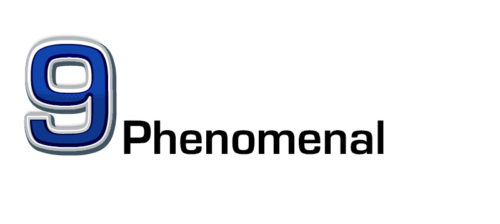

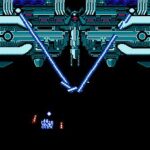
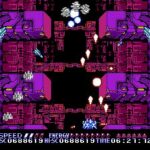
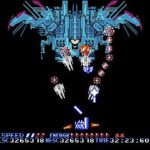
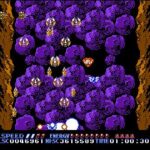
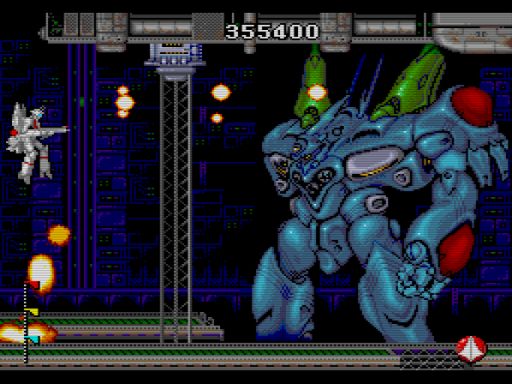

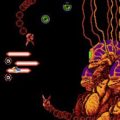
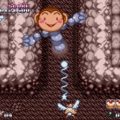
nice review. I need to play.
this website is amazing